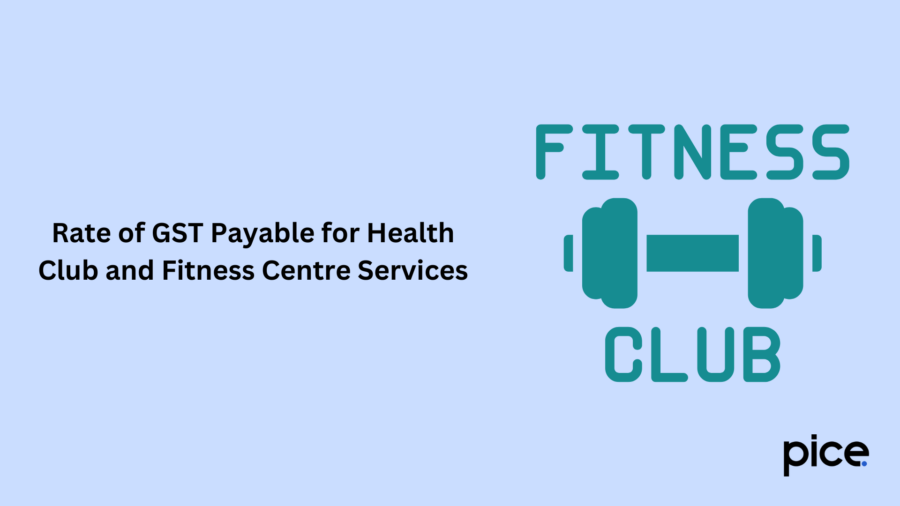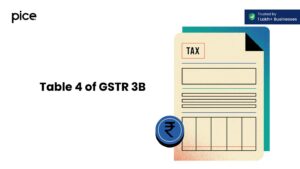GST on Gym Membership Fees
- 2 Jan 25
- 7 mins

GST on Gym Membership Fees
Key Takeaways
- Charitable gym services may be exempt from GST under specific conditions.
- Gym memberships and services attract an 18% GST rate.
- Gym equipment is taxed at 28% under GST.
- SAC Code 999723 applies to fitness and wellness services.
- Proper documentation ensures GST compliance and smooth operations.
Gym services provided by trusts are subject to specific Goods and Services Tax (GST) regulations in India. When a trust operates a gym, the taxation depends on whether it functions for charitable purposes or as a commercial entity.
Charitable trusts offering gym facilities for public health or community welfare may be exempt from GST under certain conditions. However, if the services are profit-oriented or targeted at specific groups, they typically attract an 18% GST rate.
Knowing the GST implications is crucial for trusts to maintain compliance while ensuring their operations align with their mission of promoting fitness and well-being.
Rate of GST Payable for Health Club and Fitness Centre Services

Under the GST regime, health and fitness services are categorised as taxable services. Irrespective of whether it is yoga classes, gym memberships, or wellness programs, all these services are subject to GST. There are certain concessions and exemptions provided for promoting the accessibility of healthcare and wellness activities.
The GST rates for health and fitness services vary considering the nature of service provided. As per the latest information, the GST rates applicable for health club and fitness centre services are as follows:
Health Services
- Services that clinics, medical practitioners, and hospitals provide are usually exempted from GST. This exemption further extends to diagnostic services, in-patient treatments, and medical consultations.
- Services that include elective procedures and cosmetic surgeries are availed at the standard rate of GST.
Yoga and Wellness Programs
- Meditation sessions, yoga classes, and other wellness programs are also subjected to GST. These services are mostly categorised as recreational services and are taxed at the standard rate of 18%.
- There are many government-recognizable yoga institutes or programs eligible for further exemptions or concessional rates, subject to specific conditions.
Gym Memberships and Fitness Centers
Gym membership charges and fitness centre charges are subjected to GST. These services are categorised as recreational services and are subject to taxation at the standard-wise GST rates, currently set at 18%
Some fitness centres are offering additional services that include personal training, nutritional counseling, and steam bath services, which also charge the standard goods and services rate.
What Is the GST Rate for Gyms?
GST is a tax regime prevailing in India that applies specifically to the majority of goods and services, including gym memberships. Gyms and fitness centres are categorised under the service sector, and the GST rate creates a deep impact on the payment of subscriptions by members and other fitness-related services.
Gyms are a crucial part of the wellness and fitness industry and are subject to the Goods and Services Tax (GST) in India. Till now, the applicable GST rates for gym services fall under the 18% category. When it comes to differentiating the GST rates within the gym sector, differences arise because of the nature of the services offered.
Membership fees usually charge the standard 18% GST rate and this includes access to the gym and its necessary facilities. Moreover, the charges for efficient use of gym equipment, group fitness classes and other gym amenities are also included.
On the contrary, opting for one-on-one fitness sessions charges different GST rates. Depending on the nature of the service provided with exemptions and concessions from tax authorities, the GST rates vary from one personal training session to another.
Similar to other service-oriented businesses, gyms also qualify for input tax credit. This is applicable to the GST paid for different inputs. This considers the expenses relating to gym equipment, operational costs, maintenance and others. Gyms for optimising their input tax credit claims must make sure to validate their documentation and compliance with GST regulations.
GST Rates and SAC Code for Gyms and Fitness Centers

Gyms are categorised under the service sector under GST with a particular SAC (Service Accounting Code). This code helps in classifying these services, particularly for tax purposes. Gaining a proper knowledge of the applicable GST rates and SAC codes helps to ensure compliance with tax regulations and enables fitness instructors to handle operations efficiently.
GST rate @18% applies for fitness centres and gyms
GST rate @28% applies for all equipment of the gym
SAC Code 999723 is applicable for maintaining physical well-being services that include fitness centres and health clubs as well
In case, a fitness centre is found involved in the supply of goods and services such as selling protein powders, range of cosmetic and others, then it will be mandatory for the fitness centre to get the GST registration if e-commerce is utilised for supply of goods or goods are being sold to other persons in different states.
How Many Copies of Challans for GST Tax Payment?
Physical challans are not accepted for making GST payments. Payments are made only through the challan generated through the GST portal. It is necessary to prescribe a single challan applicable for fees, taxes, penalties, and interest along with other payments made under the GST regime.
Compliance and Documentation

Adhering to GST compliance is essential for businesses functioning in gyms, beauty parlour services and healthcare services. Compliance means maintaining accurate documentation to ensure smooth operations following the GST regulations. Gyms likewise should also keep records of their membership fees, one-on-one personal training sessions, and others.
Proper documentation ensures maintaining compliance with GST regulation and thereby facilitates seamless operations of filing of GST returns. Here the businesses should keep a record of implementing a robust system for document verification to further navigate the intricacies of GST compliance successfully.
Thus, proper implementation of the installation of software for invoicing and tracking services can help streamline these processes, minimise errors and ensure GST returns are being filed on time. Thus, staying organised is essential to avoid high penalties and build up trust with clients.
Conclusion
GST on gym services provided by trusts is a nuanced area requiring a clear distinction between charitable and commercial activities. Trusts operating gyms must carefully assess their objectives and GST applicability to avoid legal issues. Proper documentation of services, memberships, and receipts is essential to ensure compliance.
Trusts focusing on community welfare can explore available exemptions to reduce costs, benefiting their members. By staying informed about GST rules and regulations, trusts can effectively manage their gym services, balance their financial obligations, and continue contributing positively to public health and fitness initiatives.
💡If you want to streamline your payment and make GST payments, consider using the PICE App. Explore the PICE App today and take your business to new heights.
 By
By 

















